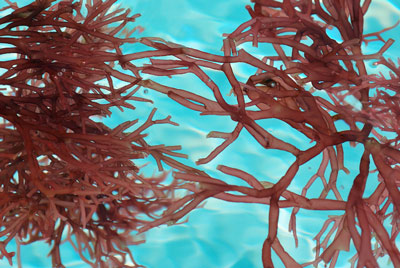
Lithium-sulfur batteries have great potential as a low-cost, high-energy, energy source for both vehicle and grid applications. However, they suffer from significant capacity fading. Now scientists from the Department of Energy’s Lawrence Berkeley National Laboratory (Berkeley Lab) have made a surprising discovery that could fix this problem.
In research led by Foundry User Gao Liu, the team unexpectedly found that carrageenan, a seaweed derivative, acts as a stabilizer in lithium-sulfur batteries. Better stability allows for more cycling and an extended lifetime. Their study was published in the journal Nano Energy in a paper titled, “Nucleophilic substitution between polysulfides and binders unexpectedly stabilizing lithium sulfur battery.”
Liu worked with Jinghua Guo of Berkeley Lab’s Advanced Light Source, one of the world’s brightest sources of ultraviolet and soft X-ray beams, to make his discovery. “The light source provides unique X-ray based tools,” Guo said. “We want the tool to monitor the electrochemistry simultaneously while the battery is charging. In this case, we made a dedicated battery cell with the materials, then used X-rays to monitor the process under in situ conditions.” Further confirmation of the materials was completed at the Molecular Foundry.

